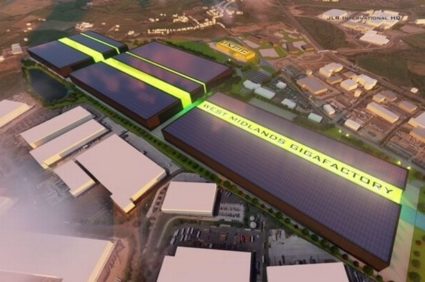
If you haven’t heard the word ‘Gigafactory’ yet, it would only have been a matter of time. They’re a hot topic – but why? Well, as the market for electric vehicles continues to expand, naturally so does the demand for their batteries. Which are hard to come by – which led to the birth of the first Gigafactory.
The phrase itself has been attributed to the usual suspect Elon Musk, whose 1.9 million square foot Gigafactory (situated in the Nevada desert) is long past its embryonic phase. And once you’ve got your head around the word, you then need to tackle the premise of ‘scale’. It’s hard to imagine but try to envision a factory spanning over 43 acres, because that’s how large these modern-age factories are. And if that wasn’t mindboggling enough, with the structure being multi-story, it means the space inside is in excess of 5.3 million square feet (121 acres). This calibre of engineering is no easy feat, and with all the work involved, just one of these factories is capable of single-handedly producing thousands of jobs (not including subsequent supply chain work…).
But why do they need to be that large? It may seem excessive, but these EV batteries are extremely high-tech, and therefore, the process and work involved in generating them is (unsurprisingly) complex. So how could the process be simplified if they couldn’t reduce the number of pieces in the puzzle? Eventually the sector came to the realisation that the process would much smoother if everything they needed was already on site and all in the same place – like any other factory line. And it doesn’t stop there, with Telsa suggesting their Gigafactories will be self-sufficient in due course, claiming that they’ll be starting with raw materials and seeing the process all the way through to complete batteries!
So, it sounds great, but it’s in the US…What about the UK? Good question. Although conversations are well underway, we’re still static at the starting line on the Gigafactory front. Andy Street, the West Midland’s Mayor grabbed the bull by the horns back in 2019, launching a campaign to see the UK’s first Gigafactory built in his backyard. Although the Midland’s car making legacy is a factor in Street’s argument, the thousands of job opportunities are a core driver. But despite Street’s passion, and the Government’s investment of £108m in Coventry’s Battery Industrialisation Centre, nothing’s set in stone.
As it stands today, the UK only has one plant manufacturing lithium-ion cells at scale, Nissan Battery Plant in Sunderland – and another nearby in the pipeline. The supply simply can’t meet the demand, so something’s got to give. So, although we don’t know when or where, we know it will, because it must. And with all the wealth of opportunity we know is present in these monster projects, in our industry, you’d be a fool to miss out!
But how can you make sure you’re going to be ready when that day comes? Simple. Do your homework. Identify the opportunities present for you and your business, then position yourself to be the obvious choice. Just knowing your stuff could be the difference between you and a competitor, and ultimately the difference between winning the work or not.
If this sounds up your street, you can read up more on our website. Our Gigafactory event page references the key areas of interest in this space, along with the experts in the field – so you can learn more and sign up to attend all in the same place!
Just click the link below:

